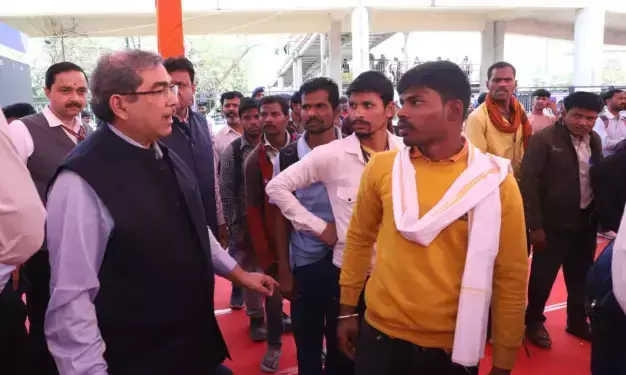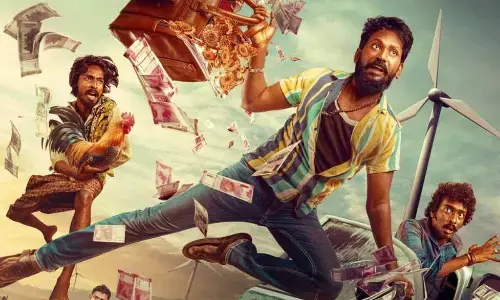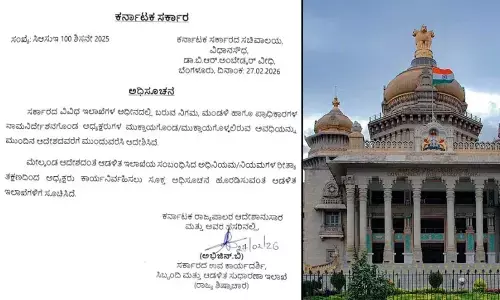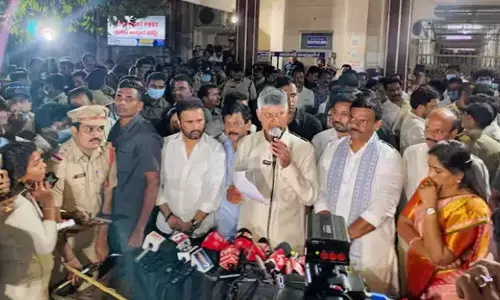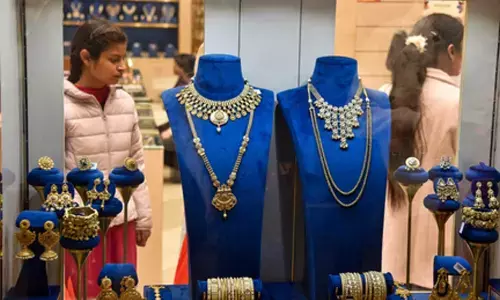Settling scores on silver screen!
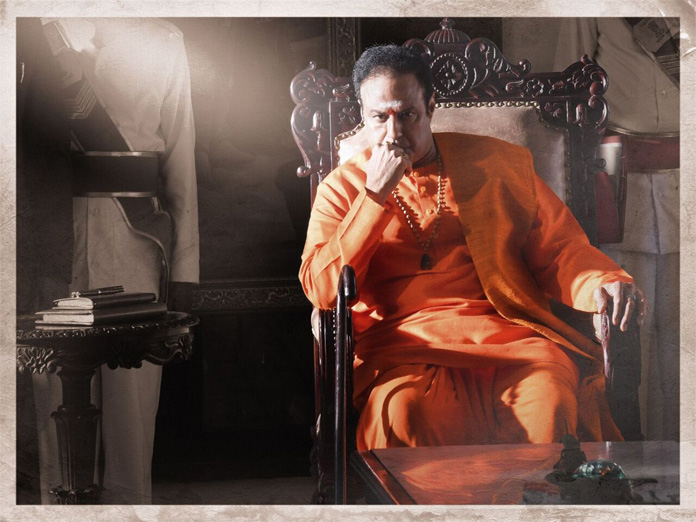
This is an election year once again In the summer of 2019, notwithstanding the already sizzling political heat generated across the country, a new government is about to take charge in New Delhi, its parliamentary tenure and political orientation not yet fully known
This is an election year once again. In the summer of 2019, notwithstanding the already sizzling political heat generated across the country, a new government is about to take charge in New Delhi, its parliamentary tenure and political orientation not yet fully known.
What is common knowledge is that the campaign arsenal that is being deployed by NDA and UPA, the top two political formations seems inexhaustible! Weapon, after weapon, each stronger and more potent, leaving aside its ethical/moral qualities are being unleashed on each other and the ‘aam aadmi’, who are warming up to encounter more acrimony, more bile and more unsubstantiated allegations.
A time-tested tactic, the unrolling of the cinema rolls to showcase the protagonist in bright, shining hues and/or trap the opponent in its spiralling loop has already reared its head across the nation. The weekend announcement made in the first week of January is the forthcoming biopic on the current PM, Narendra Modi, with matinee idol Vivek Oberoi playing the charismatic leader.
Later, awaiting release in the second week of January is the first major assault on one of India’s earlier Prime Ministers, Manmohan Singh. The film ‘The Accidental Prime Minister’, its cinematic version inspired by a book written by a former media advisor to Singh, Sanjaya Baru is keenly awaited. On the YouTube platform, it has already clocked close to five crore views, since the time its official trailer was released on December 27.
This is not an isolated set of happenings. In the southern part of India, where governments have been swept into power on the powerful vehicle of cinema and rabble-rousing dialogues written by razor-sharp writers with ideological orientations, the trend has seen a timely revival. In both cine-crazy states of Telangana and Andhra Pradesh, the viewers are beyond excited to watch their political idols on the silver screen, NTR in AP and KCR in Telangana. Then there is yet another biopic which its takers will have – one on the mercurial CM Dr Y S Rajasekhara Reddy – ‘Yatra’, which would also hit the theatres well before the elections are announced.
The powerful mass medium of cinema has invaded Indian lives, capturing it forever, from the conventional silver screens in standalone theatres of yore by finding new avenues over a good 40-year period. The mesmerising movie world entered drawing rooms through video cassettes in the 1980s, ensnared hapless middle-class families through satellite channels in the subsequent decades to finally cripple their entertainment choices by restricting them further to web series, social media, digital platforms over the internet and lastly, the smartphone.
While debates continue on its numbing impact and permanent perpetuation of stereotypes on vital issues concerning Indian society, the political class, ever alert to pick up media tools to further their agendas have taken to it with gusto, once again. For them, the benefits are immense: an undefined yet important segment of the electorate watch movies day in and day out and there cannot be any better technique to convince them of the need to go out and support the political aspirants who are seen in perpetual election mode in some form or the other throughout the year.
Across the country, cinema releases, especially when it concerns social subjects or socio-political themes have often been the centres of controversy. If it was some miffed groups of people who were worked up because their community/caste was seen badly or wrongly represented, the others used to take umbrage when their netas were shown in poor light.
As of now, no cineaste would be exempt from being bulldozed by the assault of these politically- oriented ventures. Of course, none is sure whether such blatantly subjective ventures, which have not hidden its agendas and missions, would end up influencing the target audience it has set out to woo in the first place. Yet, it is an unmistakable method for the strategists who would like to milk every available opportunity to further their causes and deride that of their opponents, who are in the same arena.
The star cast of ‘The Accidental Prime Minister’, from the point of view of its aptness is spot on. Anupam Kher, one of India’s finest cinema actors fits in seamlessly into the role, from the way he looks onscreen to the shuffling walk, the squeaky voice and the hesitant body language. Critics may agree to this point, but the objection seems to be from them on the actor’s political orientation, which is of the rival BJP group.
What is adding fuel to the fire is the set of statements both sides have hurled at each other but for the present, the saffron camp seems to have won a pyrrhic victory. That is because they have boxed the Congress down by ridiculing them that freedom of expression in its true sense would mean that even their PM candidate cannot escape scrutiny!
Coming to think of it, using film stars as campaign ambassadors for the NDA causes has been ongoing. Stars like Amitabh Bachchan on one end and Akshay Kumar on the other have actively plugged for cleanliness and menstrual hygiene in their films, themes which have found great publicity in the BJP-led central government.
Now with ‘Uri’, a film on the surgical strikes unleashed by India on PoK in September 2016 also a theme of a forthcoming release, cinema theatres are now the new rallying grounds for political parties. Here too, the southern film directors can justifiably be proud of introducing the politician as a hero/anti-hero in many of their ventures, beginning in the 1980s.
Dasari Narayana Rao reprised some of his Telugu hits in Hindi with Rajesh Khanna pitting them against the then superstar Amitabh Bachchan who had his own political potboilers ready. The Hindi film directors like Prakash Jha have also freely drawn on real-life leaders like Laloo Prasad Yadav and many other politicians in Uttar Pradesh. Despite vehement protests, such films have been released and their fates decided at the box-office, purely on their appeal and merit.
In the next few months, this is what India will witness in multiple languages, where the none-too-invisible nexus of cinema directors and politicians whipping up one flick after the other to aggressively seduce the fickle-minded voters.
Barring a placebo effect and momentary entertainment value, such ventures have to sustain itself on its narrative, however biased or one-sided it may be. Therein lies the key to success for settling scores and scoring a smashing hit at the cash counters at the same time!


